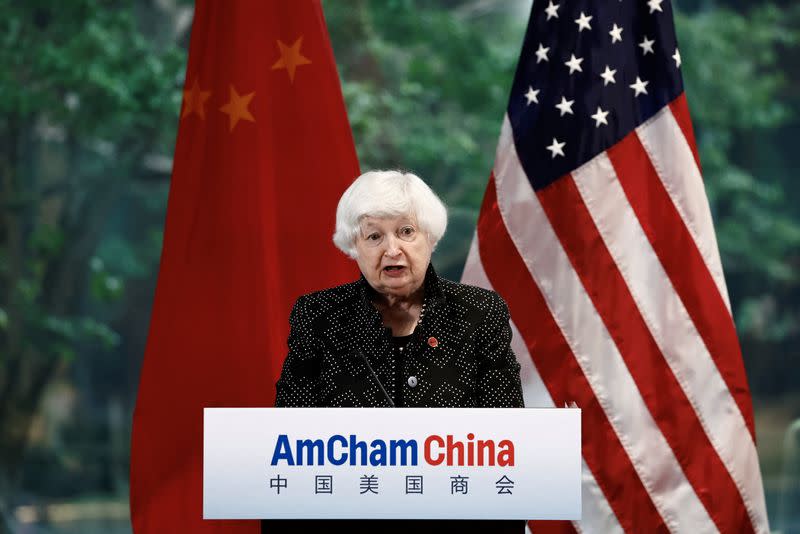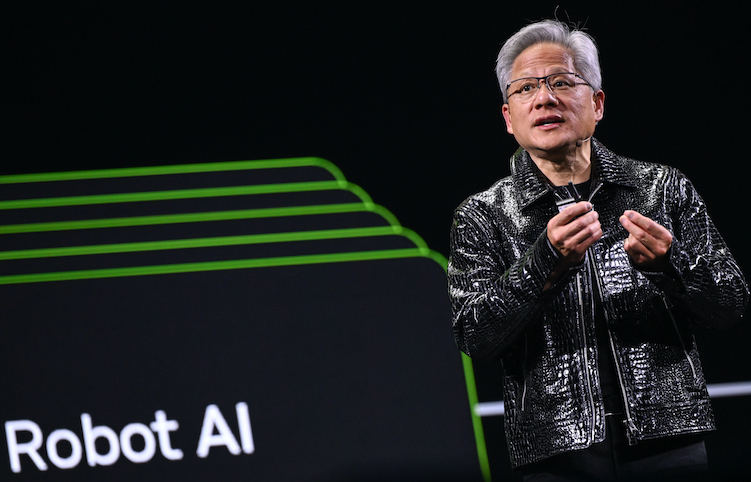On her first day of a week-long visit to China, US Treasury Secretary was focused on trade tensions in meetings in Guangzhou with American business people and local officials.
She stuck to her script – suggesting on Friday that both China and the world would benefit if Beijing reassessed the [huge] subsidies that it gives to certain sectors, while noting that ending unfair trade policies would also improve the domestic business climate, as well as the American firms they hurt.
Indeed, China was too large to try to export its way to rapid growth, she said, and would benefit by reducing excess industrial capacity that is pressuring other economies.
ALSO SEE: Huawei Faces Trial in US for Iran Dealings, Trade Secrets
“It would avoid the resource misallocation that occurs when government subsidies are channelled to firms that wouldn’t otherwise be viable,” she said. “And that’s something that would improve Chinese productivity,” she said.
In remarks to an American Chamber of Commerce, the diminutive 77-year-old economist, who appears to be well-regarded, said she understands that Beijing’s direct and indirect government support for manufacturing is linked to domestic development objectives.
But this, she said, “is currently leading to production capacity that significantly exceeds China’s domestic demand, as well as what the global market can bear.”
Yellen’s comments underscored her main objective in talks later on Friday with Chinese Vice Premier He Lifeng – to point out the problems that China’s excess factory capacity and growing exports are causing abroad, and fuelling potential trade tensions.
In March, Premier Li Qiang set an ambitious growth target of 5% for 2024, fuelled in part by more investment in new high-technology sectors as China struggles to overcome a property crisis and weak consumer demand.
The International Monetary Fund currently forecasts China’s 2024 real GDP growth at 4.6%, falling to 4.1% in 2025.
Urges market reforms
Yellen said excess manufacturing capacity in China has been a problem in the past, but it has recently intensified with emerging risks in new sectors such as electric vehicles (EVs), batteries and solar energy products, undercutting competing workers and business in the US, Mexico and India.
“I believe that addressing over-capacity, and more generally considering market-based reforms, is in China’s interest,” she said.
She drew parallels to China’s market-based reforms of past decades, which spurred growth that lifted hundreds of millions of people out of poverty, and said more gains could be made by reviving them.
Yellen also said she would raise concerns voiced by American and international companies about a deteriorating business climate in China, including “unfair treatment compared to local competitors.”
Market access complaints discussed
Meanwhile, US officials on Thursday raised commercial and market access issues impacting American companies in a meeting with Chinese officials on Thursday, the US Commerce Department said, with cross-border data flows and regulatory transparency among topics discussed.
Washington has raised concerns with Beijing for years over restricted access to the Chinese market for US companies.
Thursday’s meeting, the first between a commercial issues working group that was formed last year, was led by the US under-secretary of commerce for international trade, Marisa Lago, and Chinese Vice Minister of Commerce Wang Shouwen.
Lago “also raised strong concerns regarding growing overcapacity in a range of Chinese industrial sectors that impact US workers and businesses,” the Commerce Department said in a statement.
US and Chinese officials have kept lines of communication open in recent months. President Joe Biden and Chinese President Xi Jinping held a call on Tuesday, their first direct talks since a meeting in November.
Xi and Biden in the call discussed US efforts to block certain US technologies, including advanced semiconductors, from export to China.
Xi had warned Biden that the US is “not de-risking but creating risks” by suppressing China’s trade and technology development and adding new entities to US sanctions lists.
The White House said Biden raised concerns with Xi about what Washington described as China’s “unfair trade policies and non-market economic practices.”
- Reuters with additional editing by Jim Pollard
NOTE: Initial pars were amended to add further details from Yellen’s AmCham speech on April 5, 2024.
ALSO SEE:
Yellen Warning to China on Oversupply Seen Falling on Deaf Ears
Foreign Orders Lift China’s Manufacturing Again in March: Caixin
China’s Big 5 Lenders Warn of Property Risks as Margins Shrink
China’s Country Garden ‘Hires Kroll For Liquidation Assessment’
Foreign Investment in China Slumps 20% in January-February
China’s Big Guns Defend GDP Target, Explain Economic Policies
























